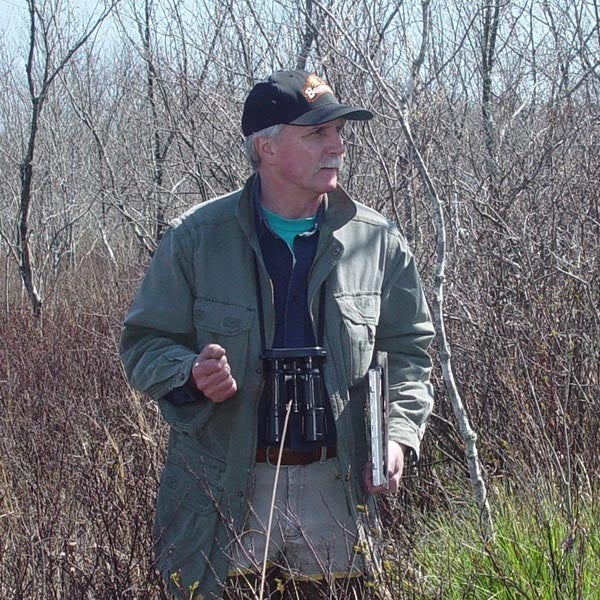Celebrated for his lifelong dedication to wetland science, unmatched mentorship, and an unwavering commitment to conservation, Frank Golet, Professor Emeritus in the University of Rhode Island’s Department of Natural Resources Science, received the Lifetime Achievement Award from the Society of Wetland Scientists (SWS) earlier this month.
In his 37-year career at URI, Golet was known for teaching some of the hardest — yet most rewarding and sought after — courses. To date, 267 of his former students have gone on to careers in wetland science either at federal agencies, state agencies, private consulting firms, municipal governments, nonprofits, and university position. “His students often describe these courses as transformative—rich in science, grounded in the field, and fueled by his deep passion for wetlands,” says Amanda Nahlik, chair of the awards committee.
“He lit a fire inside his students and urged us to use what we learned to make the world a better place,” says Kate McPherson ’03, one of his nominators for the SWS Lifetime Achievement Award. “He held himself to a high standard in teaching us, and in return expected excellence in class and in our future careers.”
Golet’s “uncanny ability to make students feel seen” was a sentiment shared by many, McPherson adds. “He showed us why wetlands were worth falling in love with, and then gave us immense power and responsibility to go forth in our careers to try and do right by them.”
Impactful beyond the classroom, his dedication to both protecting wetlands and educating the public about wetlands has been evident in his prolific research, publications, and service to Rhode Island. In 1979 Golet co-authored the U.S. Fish and Wildlife Service’s Classification of Wetlands and Deepwater Habitats of the United States, which is still used by scientists and agencies nationwide. “His research has expanded our understanding of wetland ecology, hydrology, and restoration, and helped shape wetland protection policies across Rhode Island and beyond,” says Nahlik.
Golet was also a key architect of Rhode Island’s wetland regulations, serving on multiple commissions to improve wetland policy and protections, volunteering hundreds of hours to ensure the best available science informed legislation. He was involved with the restoration of iconic Rhode Island wetland sites, including the Galilee Salt Marsh, and his research on red maple swamps, vernal pools, and forested wetlands provided critical ecological insights that continue to guide conservation and land-use decisions in the state today.
“Frank has been a tireless advocate for wetlands through public service, collaboration, and policy development,” says Nahlik. “His ability to bridge science and policy, and to communicate the value of wetlands with clarity and conviction, earned him numerous honors—including the National Wetlands Award, the U.S. Fish and Wildlife Service Legacy Award, and Rhode Island’s Distinguished Naturalist Award.”
“I can’t think of a more deserving candidate for the Society of Wetland Scientists Lifetime
Achievement Award,” McPherson adds.

